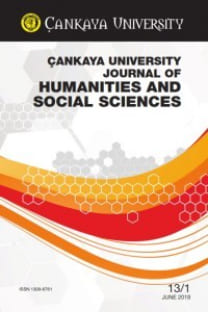Is There a Way Out?: The Inhuman Politics of Noboru and His Gang in Yukio Mishima’s The Sailor Who Fell From Grace with the Sea
Is There a Way Out?: The Unhuman Politics of Noboru and His Gang in Yukio Mishima's The Sailor Who Fell From Grace with Sea
-,
___
- Bargen, D. G. Doris, (1997) A Woman’s Weapon: Spirit Dispossession in the Tale of Genji (Hawaii University Press).
- Cawthorne, Nigel, (2011) Sordid Sex Lives: Shocking Stories of Perversion and Promiscuity from Nero to Nilsen (London: Quercus).
- Mishima, Yukio, (1970) The Sailor Who Fell from Grace with the Sea (Middlesex: Penguin Books).
- Mishima, Yukio, (1971) The Temple of the Golden Pavilion (New York: Berkeley Books).
- Tyson, Lois, (2006) Critical Theory Today: A User-Friendly Guide (New York: Routledge).
- Yamanounchi, Hisaaki, (1972) “Mishima Yukio and His Death,” Modern Asian Studies, 6/1, (1972): 1-16.
- Yukio Mishima, The Temple of the Golden Pavilion, (New York: Berkeley Books, 1971), pp.30.
- ISSN: 1309-6761
- Yayın Aralığı: Yılda 2 Sayı
- Başlangıç: 2004
- Yayıncı: Çankaya Üniversitesi
Self-Reflexive Metafictional Games in The Life and Opinions of Tristram Shandy
Çeviri Amaçlı Söylem Çözümlemesi Bağlamında Hamlet
Teaching Audiobisual Translation: Theory and Practice in the Twenty-first Century
Elements of Translation Acceptabilitiy
Fateme ARAGHI, Mostafa RAMEZANPOOR
